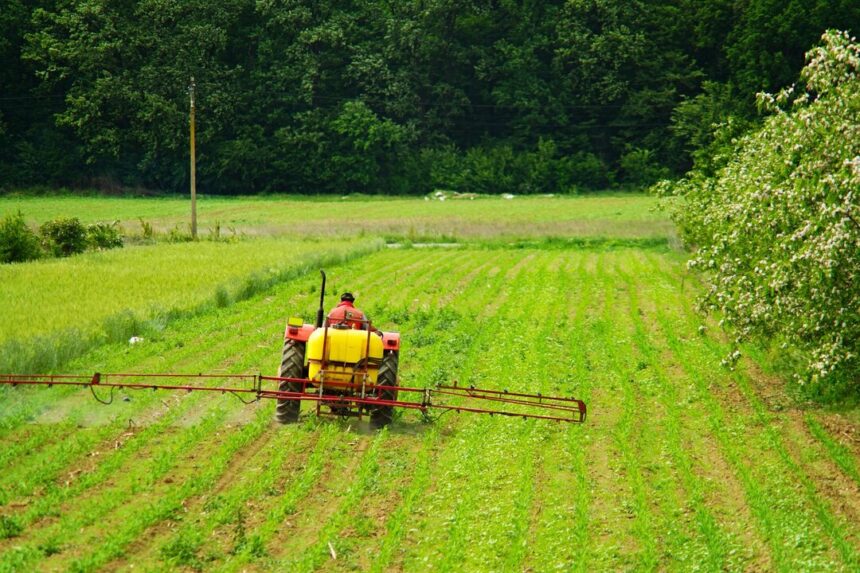Effective pest control is critical for achieving healthy crops and higher yields, especially for South African farmers facing challenges such as invasive pests and changing climatic conditions. Selecting and using the right pest control equipment can significantly improve harvest quality and reduce losses. Here’s a detailed guide to help you make informed decisions.
Understanding the Importance of Pest Control Equipment
Pests such as aphids, caterpillars, and locusts can destroy crops if not managed properly. Effective pest control not only safeguards crops but also minimizes the need for excessive pesticide use, reducing costs and environmental impact. With the right tools and techniques, farmers can target pests efficiently while protecting their crops and the surrounding ecosystem.
Factors to Consider When Selecting Pest Control Equipment
Type of Crops
Different crops require specific pest control methods. For example, fruit trees may need mist blowers for proper coverage, while vegetable crops may benefit from handheld or backpack sprayers. Understanding your crop’s unique requirements ensures you choose suitable equipment.
Farm Size
The size of your farm determines the scale and type of equipment needed. Small farms may only require manual or motorized backpack sprayers, while larger farms benefit from tractor-mounted sprayers or drone-based solutions.
Type of Pests
Identifying the pests affecting your crops is crucial. Some pests require targeted solutions like bait stations, while others may need broad-spectrum spraying equipment. Conducting a pest assessment helps you select the most effective tools.
Ease of Use and Maintenance
Choose equipment that is easy to operate and maintain. Complex machinery with steep learning curves can lead to misuse, while equipment requiring frequent repairs can increase downtime. Opt for reliable, user-friendly options that come with clear instructions.
Budget and Durability
Invest in quality equipment that fits your budget. While cheaper tools may seem appealing, they often wear out quickly, leading to higher long-term costs. Durable equipment, even at a higher upfront cost, ensures better performance and longevity.
Types of Pest Control Equipment
Handheld Sprayers
Ideal for small-scale farmers, handheld sprayers are lightweight and cost-effective. They are best suited for spot treatments and areas with minimal pest infestations.
Backpack Sprayers
Popular among small and medium-scale farmers, backpack sprayers allow for efficient pesticide application over larger areas. They are available in manual and motorized versions, offering flexibility for different farming needs.
Tractor-Mounted Sprayers
For large farms, tractor-mounted sprayers are essential for covering extensive areas quickly. These sprayers are highly efficient and reduce the labor required for pest control.
Mist Blowers
These are designed for crops that require precise application, such as fruit orchards. Mist blowers produce fine droplets that evenly cover the plants, ensuring effective pest management.
Drone Sprayers
A modern solution for precision agriculture, drones can cover large areas with minimal labor. They are ideal for farms with difficult terrain or areas where traditional machinery cannot reach.
How to Use Pest Control Equipment Effectively
Read and Follow Instructions
Before using any pest control equipment, read the manufacturer’s manual carefully. Understand how to operate and maintain the tool, as improper use can lead to ineffective pest control or equipment damage.
Calibrate the Equipment
Ensure your equipment is properly calibrated to deliver the correct dosage of pesticides. Over-application can harm crops and the environment, while under-application may fail to control pests.
Choose the Right Time for Application
Apply pesticides during early morning or late afternoon when temperatures are lower, and wind is minimal. This prevents pesticide drift and ensures better adherence to the crops.
Use Protective Gear
Always wear protective clothing, gloves, masks, and goggles when handling pesticides to protect yourself from harmful exposure.
Maintain Your Equipment
Regular maintenance keeps your equipment in good working condition. Clean sprayers and nozzles after use, check for leaks, and replace worn-out parts promptly.
Adopt Integrated Pest Management (IPM)
Combine equipment-based pest control with other methods, such as crop rotation, natural predators, and resistant crop varieties. This reduces reliance on chemical pesticides and promotes sustainable farming practices.
Selecting and using the right pest control equipment is a key step toward achieving better harvests. By understanding your farm’s needs, investing in suitable tools, and following proper application techniques, you can manage pests effectively while protecting your crops and the environment. With the right approach, South African farmers can look forward to healthier plants, higher yields, and more sustainable agricultural practices.
Join 'Farmers Mag' WhatsApp Channel
Get the latest Farming news and tips delivered straight to your WhatsApp
CLICK HERE TO JOIN






